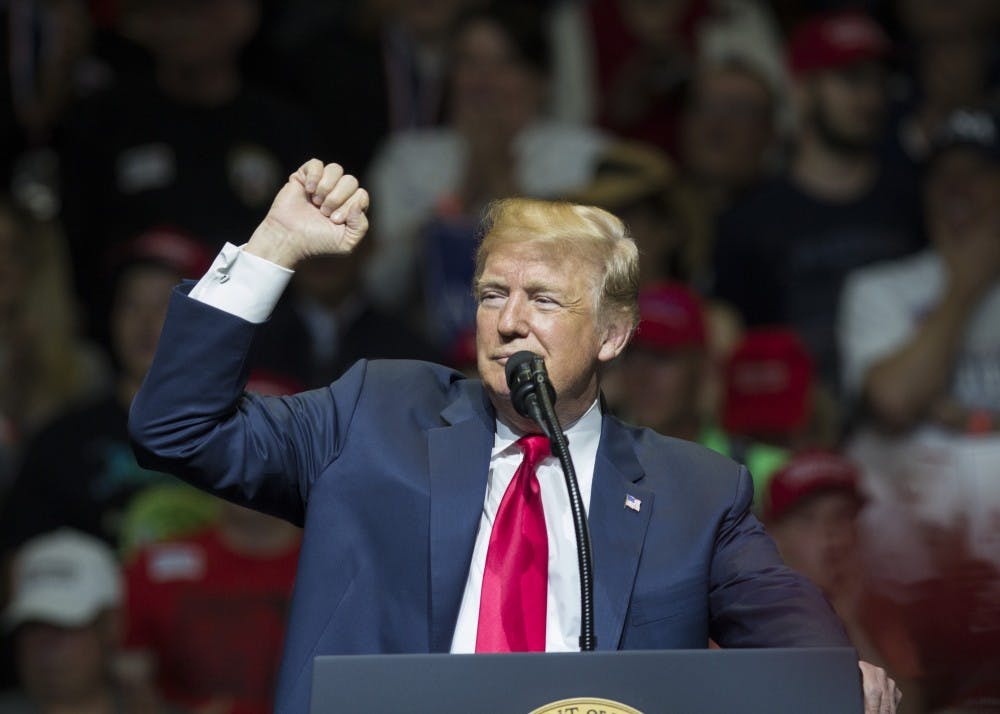The Decision
The Supreme Court ruled, 5-4, to uphold President Donald Trump's travel ban Tuesday. The version of the ban the Supreme Court ruled on was the third version of its kind and bars almost all travelers from five majority-Muslim nations — Iran, Libya, Somalia, Syria and Yemen — as well as from North Korea, and government officials from Venezuela, from entering the United States.
The majority decision, written by Chief Justice John Roberts, argues that based on the Immigration and Nationality Act, the president has broad powers to limit or ban U.S. entry to "all aliens or any class of aliens" if he believes their entry would be "detrimental to the interests of the United States."
Not only does the president have broad powers but the language used in this version of the ban was considered race and religion neutral, even if the main countries affected are all Muslim-majority ones.
Explained
The decision fell largely along ideological lines with Justices Sonia Sotomayor, Ruth Bader Ginsburg, Stephen Breyer and Elena Kagan all dissenting from the majority.
The majority opinion written by Roberts is one that sticks doggedly to the classic nature of the Supreme Court in defining matters of law and broad rules which government can follow and not on policy. For SCOTUS, the case, in one sense, was more about defining the authority of the presidency than a particular president.
“We must consider not only the statements of a particular President, but also the authority of the Presidency itself,” Roberts wrote in his opinion.
Trump celebrated this victory by taking to Twitter.
The White House also released a statement calling the decision a tremendous victory for the American people.
Justice Sonia Sotomayor, in a blistering dissent, critiqued the ruling.
"The United States of America is a Nation built upon the promise of religious liberty," she wrote. "Our Founders honored that core promise by embedding the principle of religious neutrality in the First Amendment. The Court’s decision today fails to safeguard that fundamental principle. It leaves undisturbed a policy first advertised openly and unequivocally as a “total and complete shutdown of Muslims entering the United States” because the policy now masquerades behind a facade of national-security concerns.
Later in her written dissent, Sotomayor argued while the language of the ban might have been neutral, Donald Trump was not. She explained that through numerous tweets and comments he had shown an anti-Muslim bias.
“Taking all the relevant evidence together, a reasonable observer would conclude that the Proclamation was driven primarily by anti-Muslim animus, rather than by the Government’s asserted national-security justifications,” Sotomayor wrote.
Further criticism and debate
Democratic leaders Nancy Pelosi and Chuck Schumer joined Sotomayor, claiming the decision is simply handing U.S. enemies a new weapon to us against the country and it fails to make this country safer.
“The president’s travel ban doesn’t make us safer, and the Supreme Court’s ruling doesn’t make it right,” Schumer tweeted. “This is a backward and un-American policy that fails to improve our national security.”
The director of the ACLU's Immigrants’ Rights Project, Omar Jadwat, released a statement online reacting to the news as well.
He said this ruling will go down as one of the Supreme Court's greatest failures. He also said this decision repeats mistakes made when SCOTUS upheld the right to hold Japanese Americans in internment camps after Pearl Harbor.
Some conservatives, like commentator Ben Shapiro, were quick to fire back on Twitter that the travel ban was not like Japanese internment and immigration enforcement did not make the U.S. akin to Nazi Germany.
But regardless of current debate, support or criticism, the 5-4 decision stands as does the travel ban.




